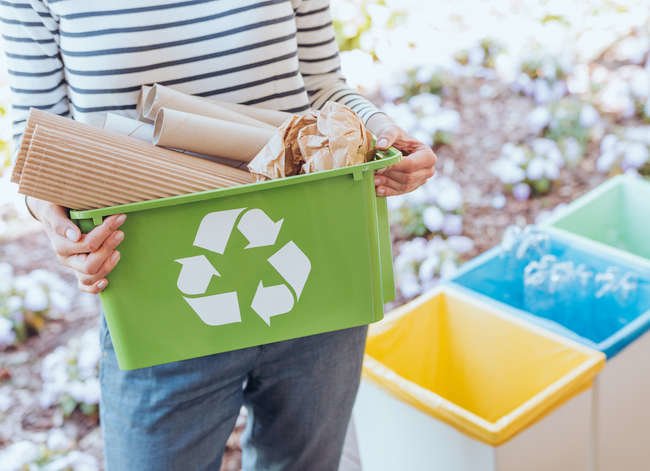We may earn revenue from the products available on this page and participate in affiliate programs. Learn More ›
Recycling Rules
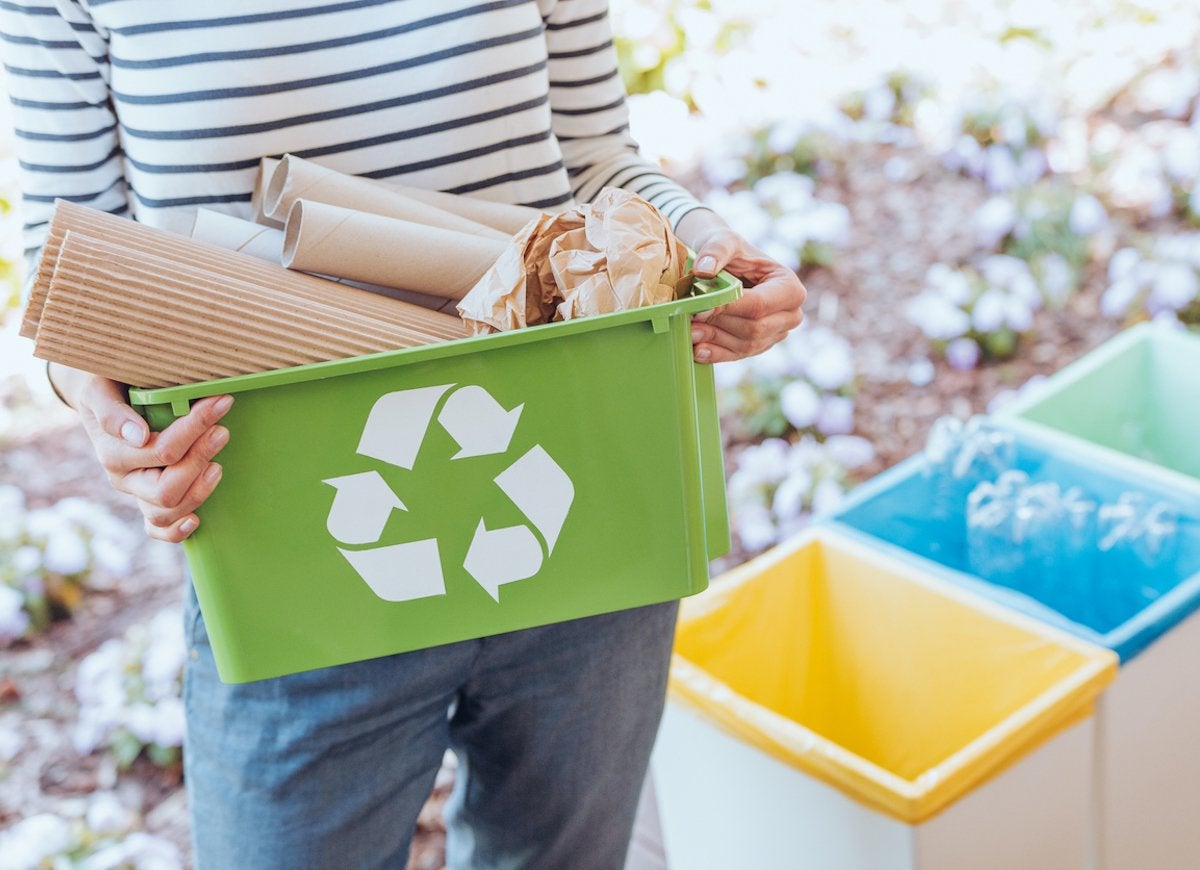
To toss or to recycle? It’s not always clear. Some materials (like packing peanuts) can’t be recycled, but can be reused. Other items (like mattresses and some electronics) can’t go into normal recycling, but can be donated or collected by special services. We’ve compiled a list of the most common household items that won’t be picked up by your curbside recyclers.
Related: I Started Recycling in 2023—Here’s Why It’s Not What I Expected
Grease- or Oil-Soaked Cardboard
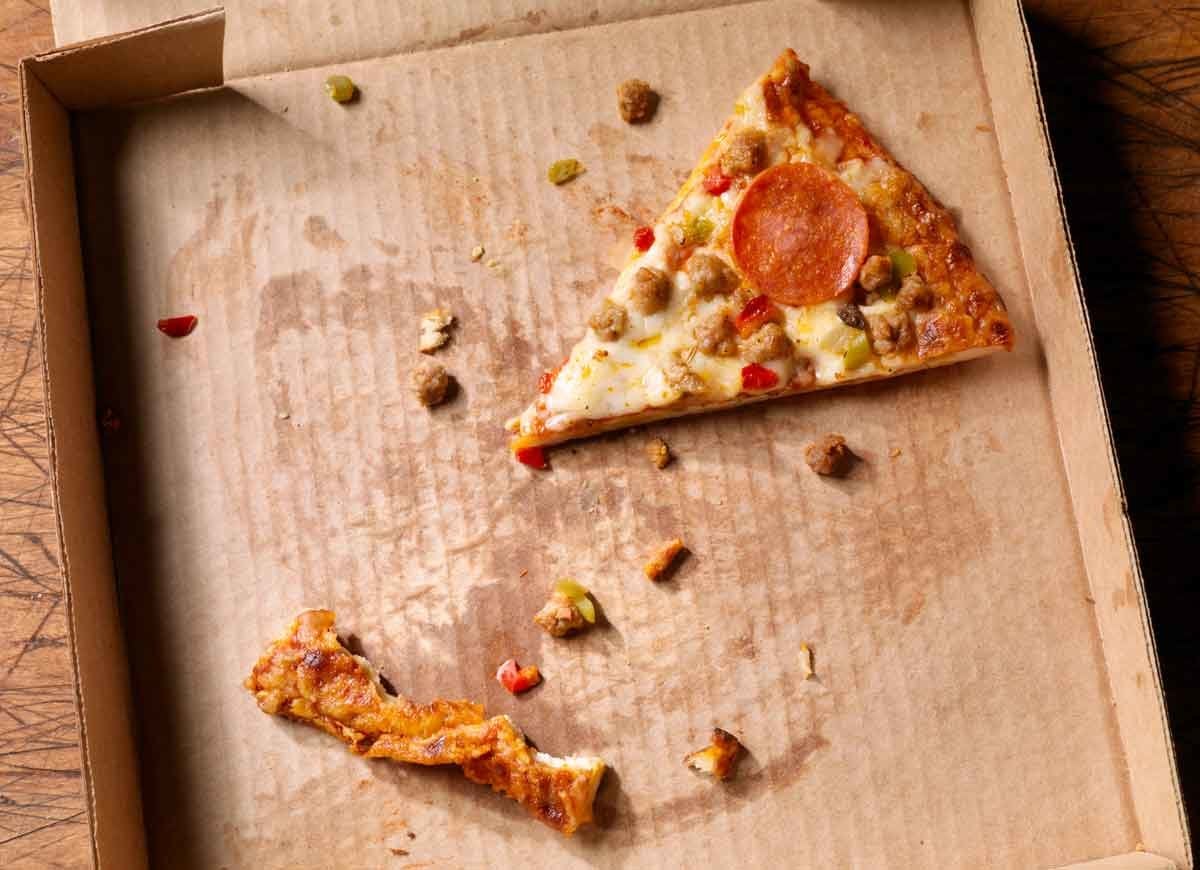
That gooey, yummy pizza you enjoyed last weekend most likely came in a cardboard box, which is typically recyclable. If, however, the box is too greasy or contaminated with food waste, such as cheese stuck to the lid, it can’t be recycled. That’s because the grease and food particles might damage the recycling equipment or contaminate other materials in the bin. A little oil and crumbs are okay, but if the box is soaked through or saturated with cheese then put it in the composting bin or the trash.
Most Lids
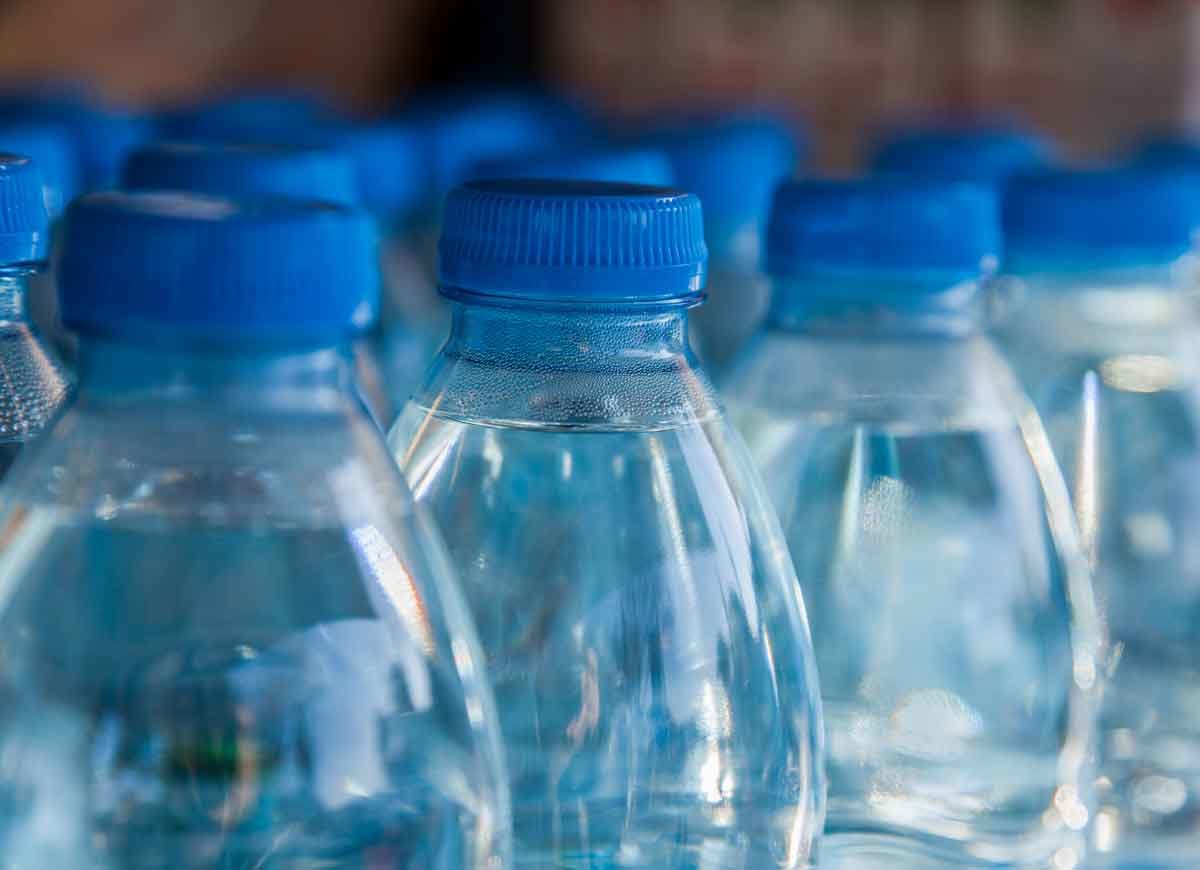
Most lids and caps on water bottles, soda bottles, detergent bottles, and similar containers are made from polypropylene, also known as plastic #5, and typically can’t be recycled.
Packing Peanuts
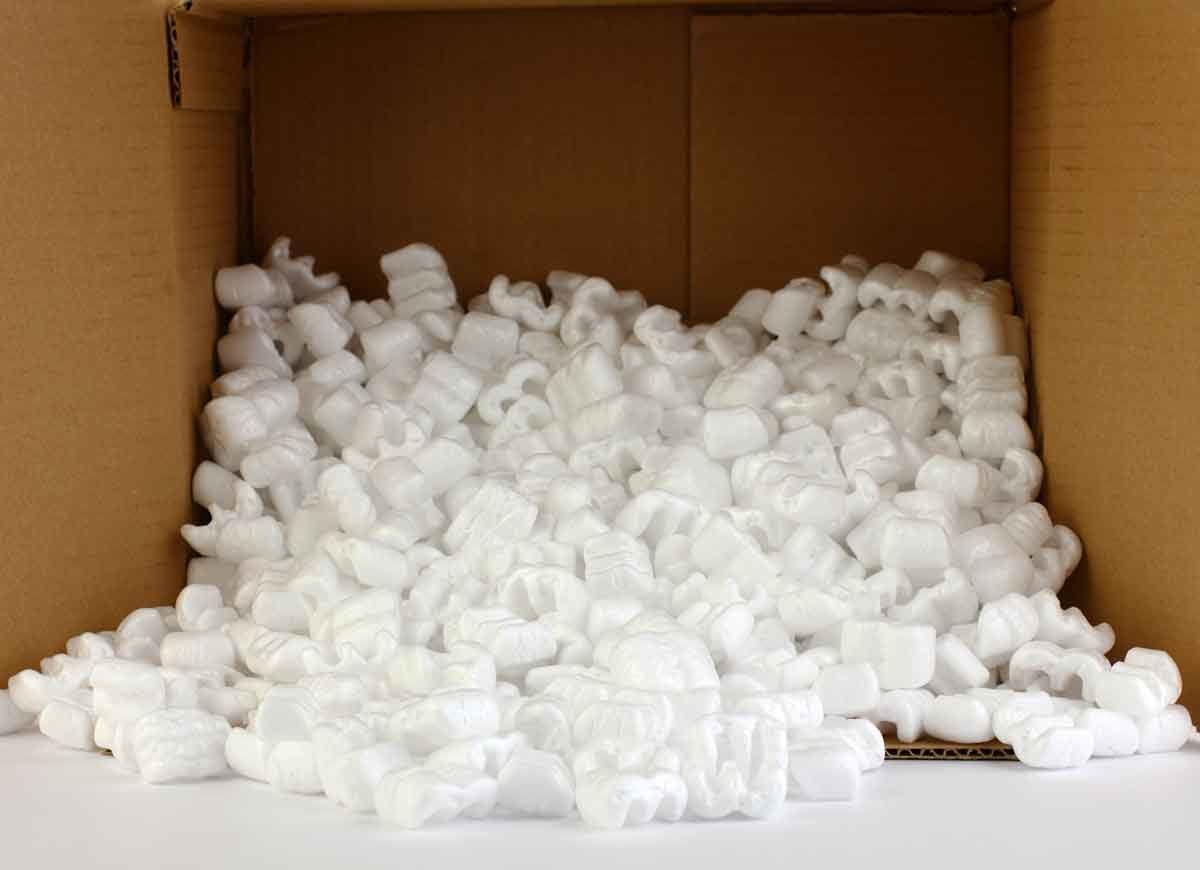
Packing peanuts are made of expanded polystyrene and therefore can’t be recycled. If you receive a passel of packing peanuts in a delivery, rather than ship them off to a landfill, consider reusing them around the house; many commercial shipping services also will accept clean packing peanuts from consumers.
Ceramic or Oven-Safe Serving Pieces

Ceramic and oven-safe dishes, bakeware, cookware, and serving pieces are designed to withstand high heat, so they have a higher melting point than conventional glass. For this reason, most recycling centers will turn away these handy kitchen necessities.
Related: The 30 Best Eco-Friendly Products
Styrofoam or Polystyrene Containers
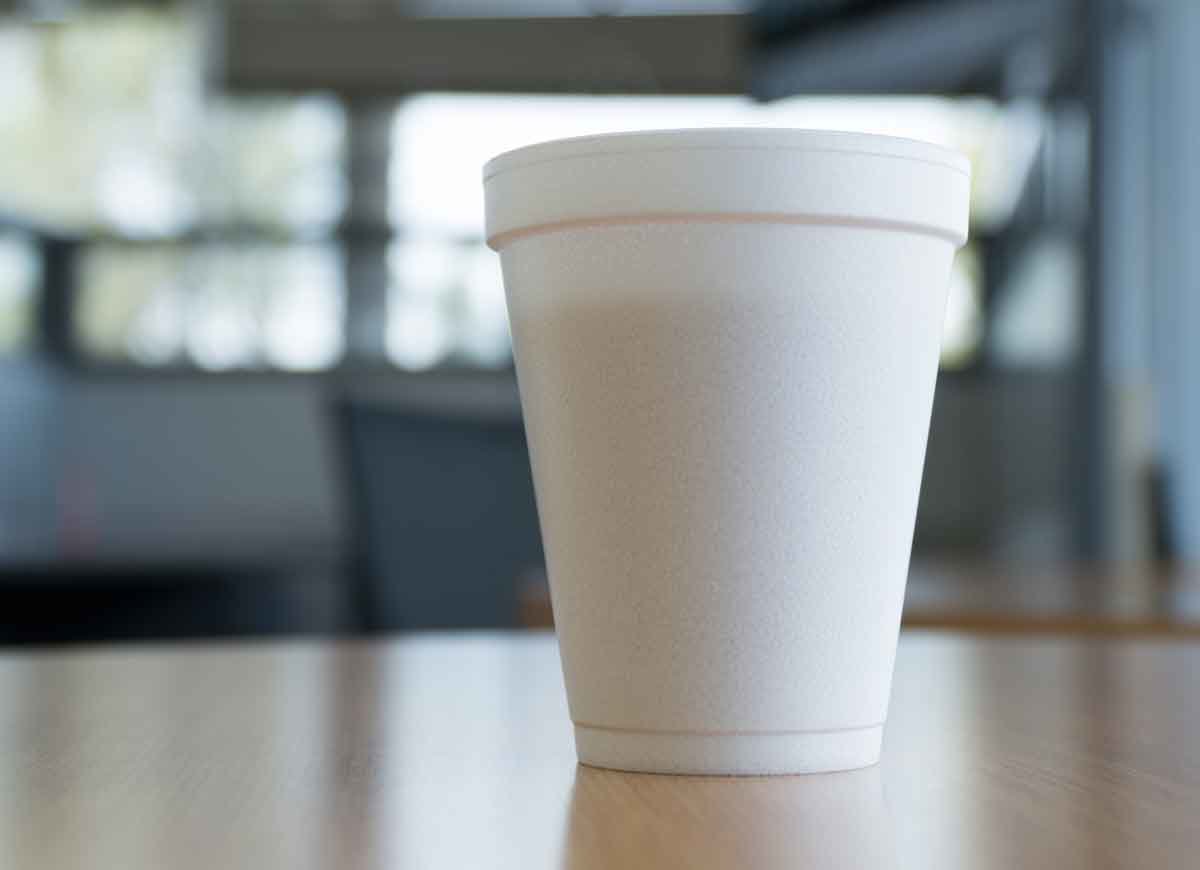
Styrofoam and polystyrene containers (egg cartons, fast food take-out boxes, coffee cups, and the like) aren’t recyclable—and even worse, they don’t biodegrade in landfills. Many restaurant chains have shifted away from styrofoam and polystyrene packaging, and homeowners should consider doing the same.
Plastic Straws and Utensils
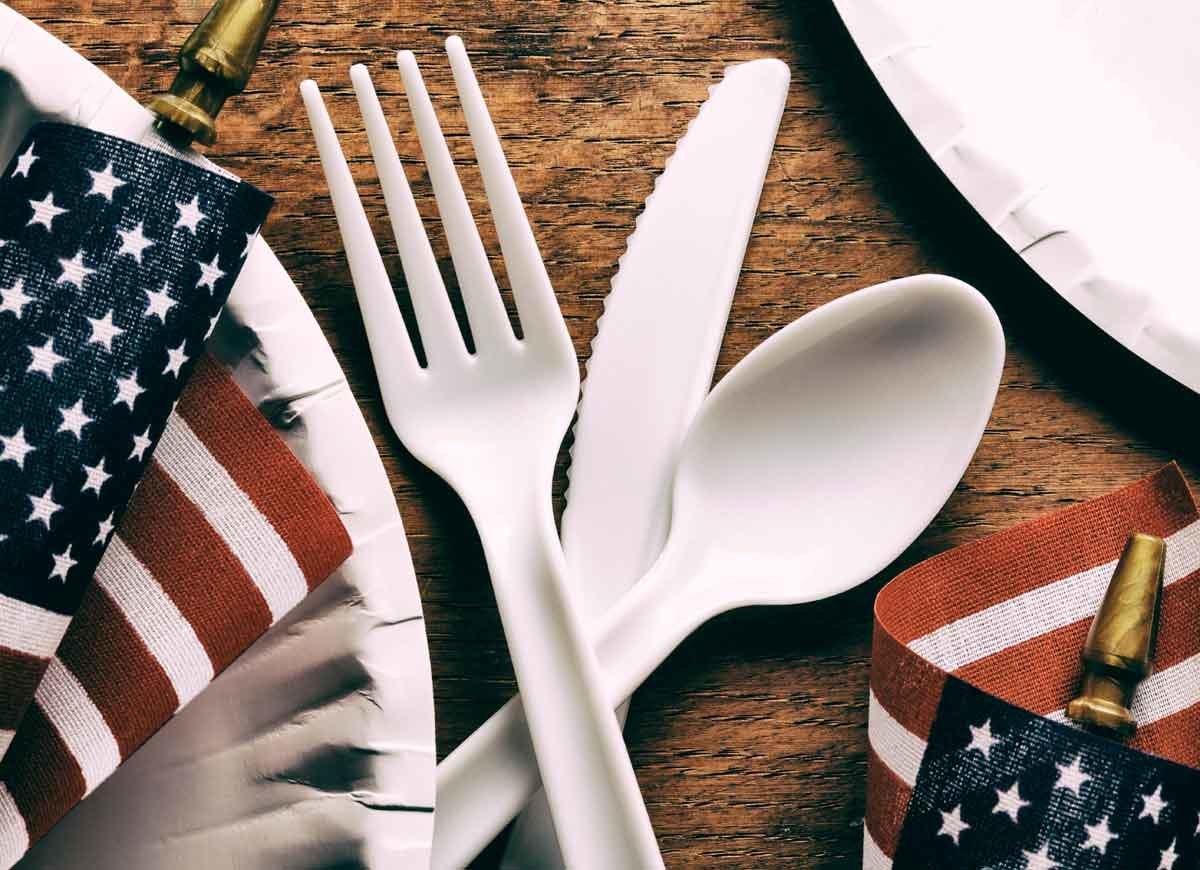
Plastic utensils and some disposable straws contain plastic #6 (polystyrene). Because this material costs big bucks to recycle, most municipalities will not accept your plastic serving items. Before you toss them in the trash, however, consider reusing them for DIY projects!
Aerosol Cans
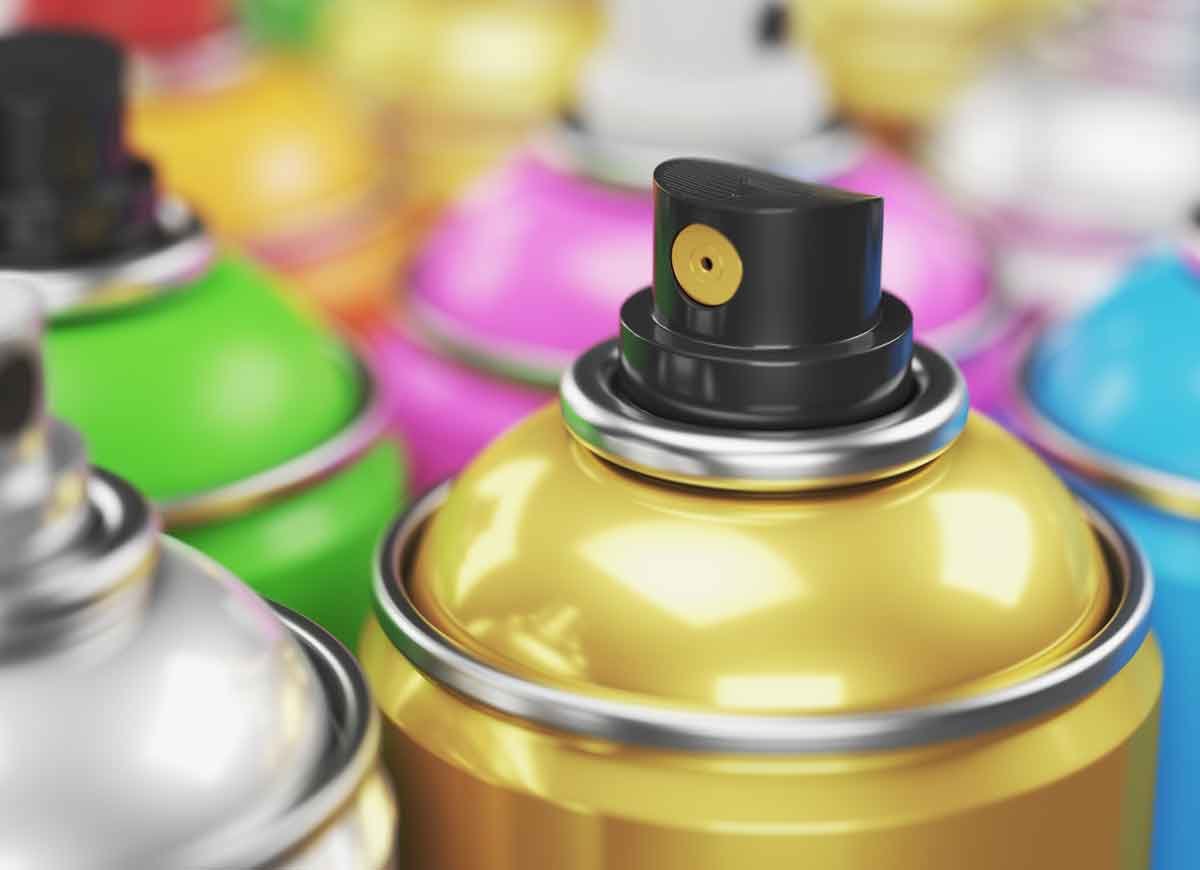
Although aerosol cans are made of metal, the pressurized contents could damage recycling machinery. As a result, these items should be discarded with the regular trash.
Related: Let It Go: 14 Things to Trash Without Thinking Twice
Plastic Bags and Plastic Wrap
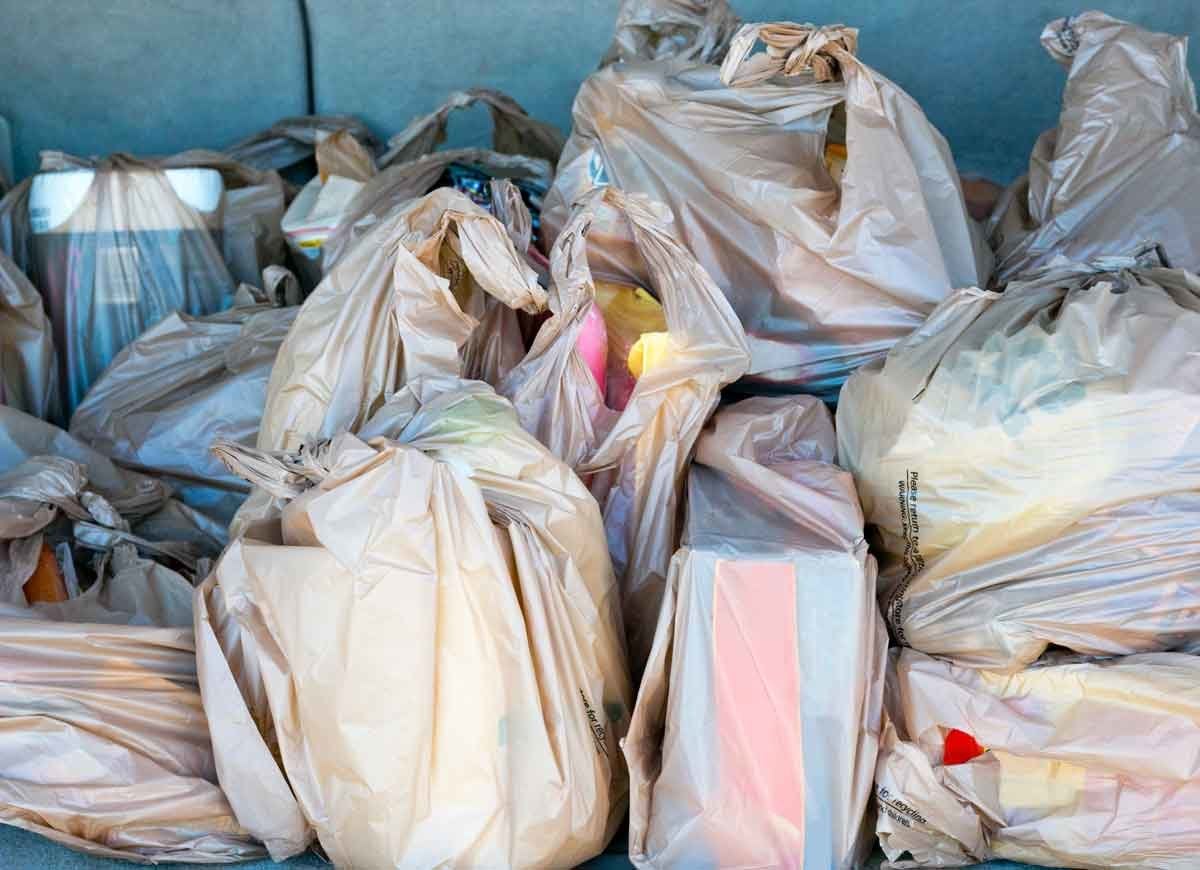
Plastic shopping bags and plastic wrap usually aren’t accepted for recycling because the lightweight material can tangle, clog, and potentially damage the machinery used in recycling centers. Keep in mind, however, that many grocery store chains allow consumers to reuse plastic shopping bags; some also have collection bins for torn or unusable bags.
Windows, Mirrors, or Broken Glass
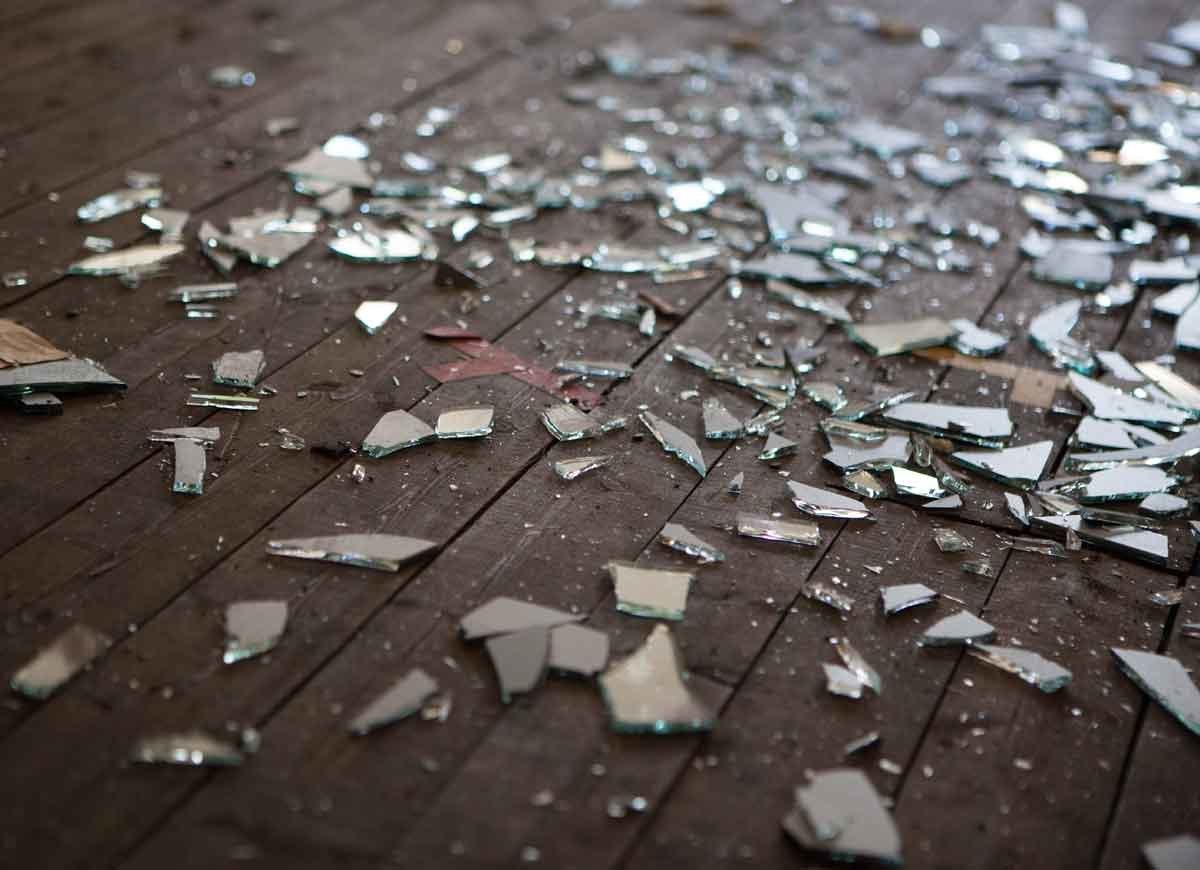
While almost all glass jars and containers are recyclable, not all glass is created equal. Homeowners should think twice before trying to recycle window glass, light bulbs, fluorescent light tubes, mirrors, plate glass, drinking glasses, eyeglasses, vases, and glass art pieces.
Hardcover Books
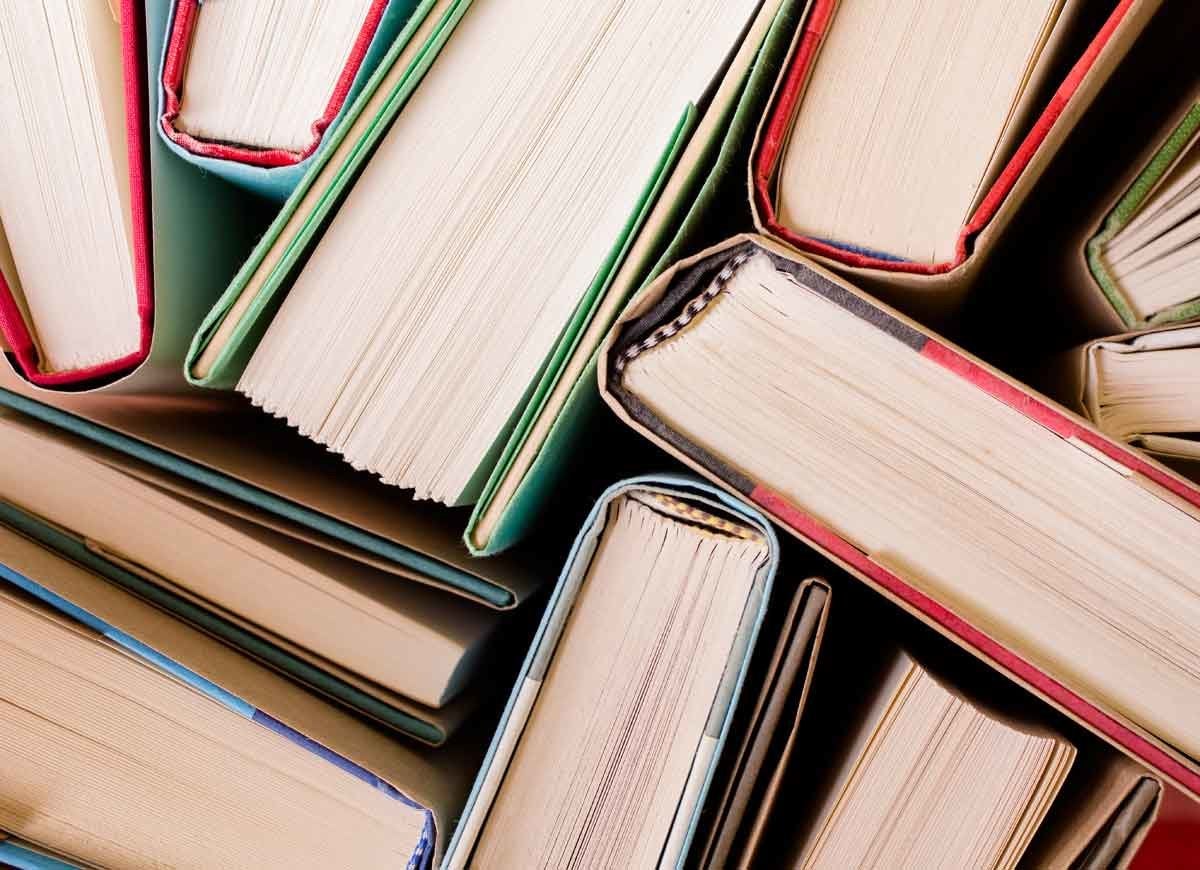
Because books are made of paper, many people assume they’re fully recyclable. But the sturdy covers of hardcover books contain non-paper components and must therefore be removed before you toss that novel into the bin.
Related: 9 Smart Uses for Dusty Old Books
Plastic Shower Curtains and Liners

Most plastic shower curtains and liners are constructed with polyvinyl chloride (PVC). Because of the chemicals used in the manufacturing of PVC, these items can’t be broken down and recycled. They are, however, ripe for reuse: Try giving curtains a new life as outdoor tablecloths, drop cloths, drawer liners, or craft supplies.
Medical Waste
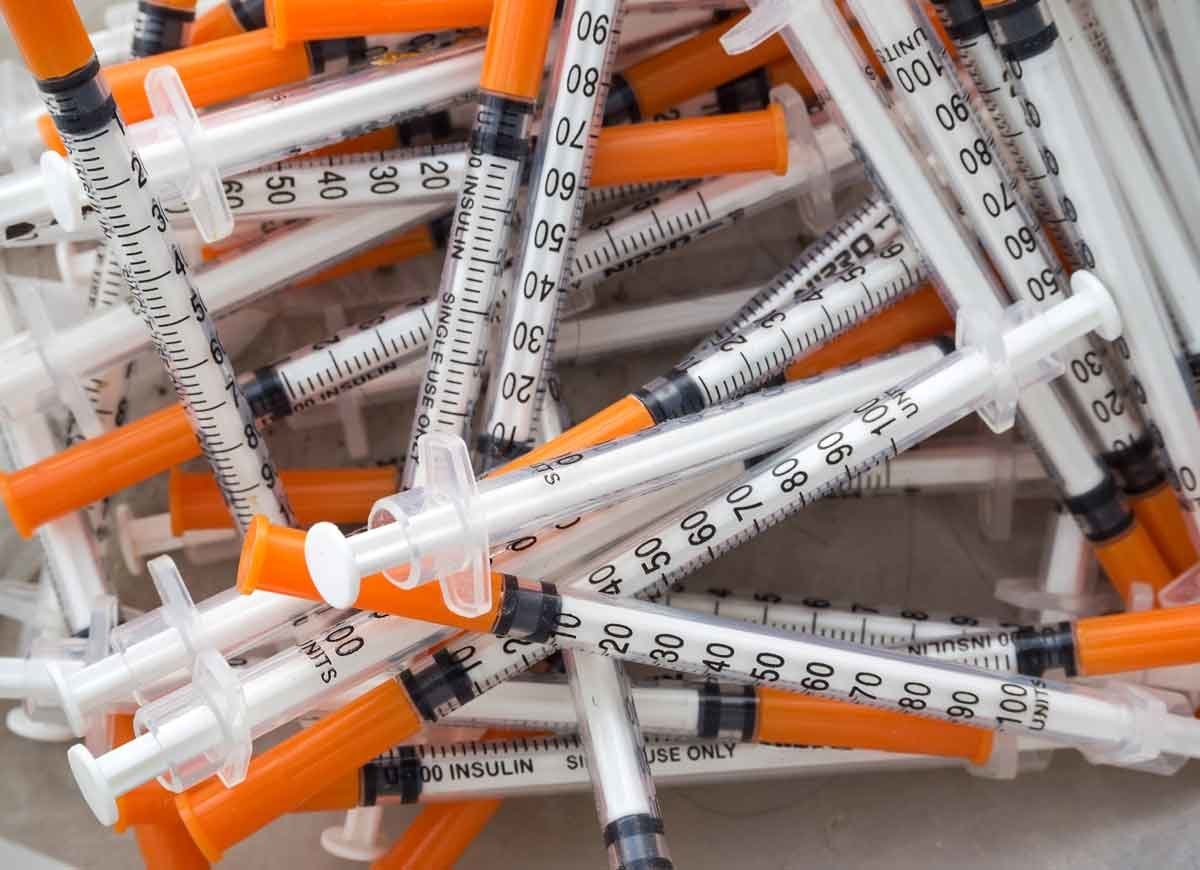
Needles, plastic syringes, and prescription containers are classified as biohazards and therefore can’t be recycled. Contact your doctor, pharmacy, or local hospital to learn about disposal options.
Related: The 30 Best Eco-Friendly Products
Waxed Paper and Cartons
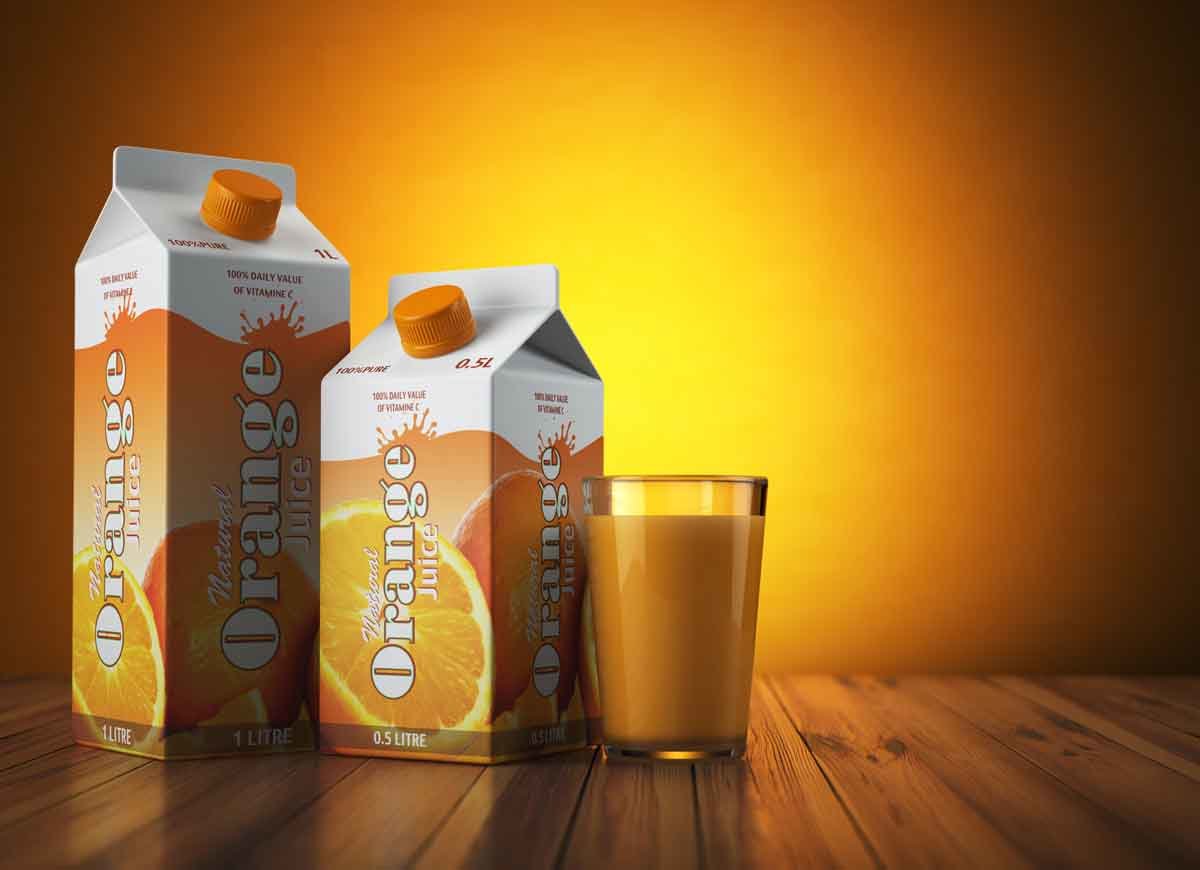
Do you buy broth, stock, and orange juice in cartons? This convenient packaging should not be recycled, because the wax fibers on the coating won’t break down properly. Other products with wax coatings, such as waxed paper, silicone baking paper, waxed baking cups, and most frozen food boxes, should also be tossed in the trash—but as some municipalities do accept cartons, check first with your local sanitation department.
Related: I Started Recycling in 2023—Here’s Why It’s Not What I Expected
Old TVs and Electronics
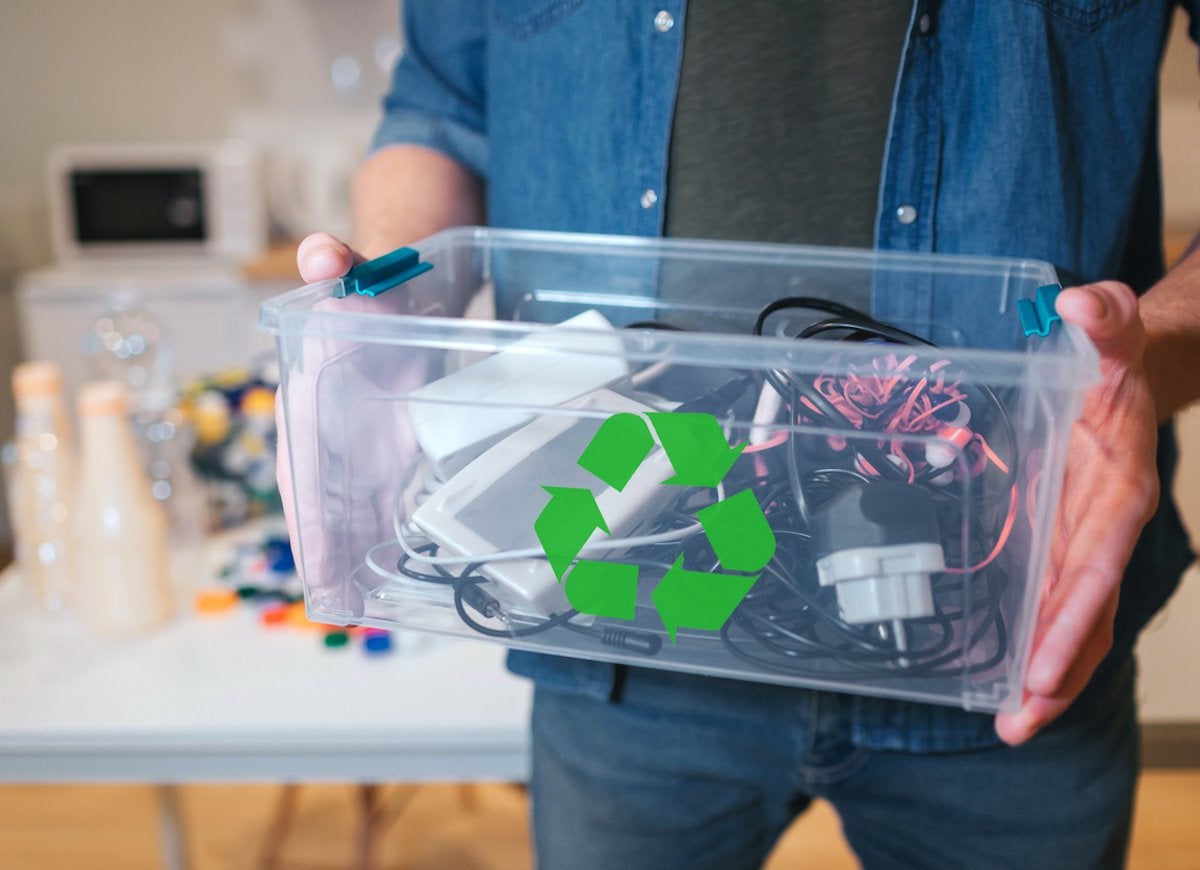
Some donation centers, like Goodwill, won’t accept electronics that aren’t in working order, including old cathode-ray tube TVs. And curbside collection won’t pick these items up either. Instead, head to Best Buy, which is currently the nation’s largest recycler of e-waste, no matter how old it is.
Related: 10 Things to Know About Disposing of Old Electronics
Cleaning Products
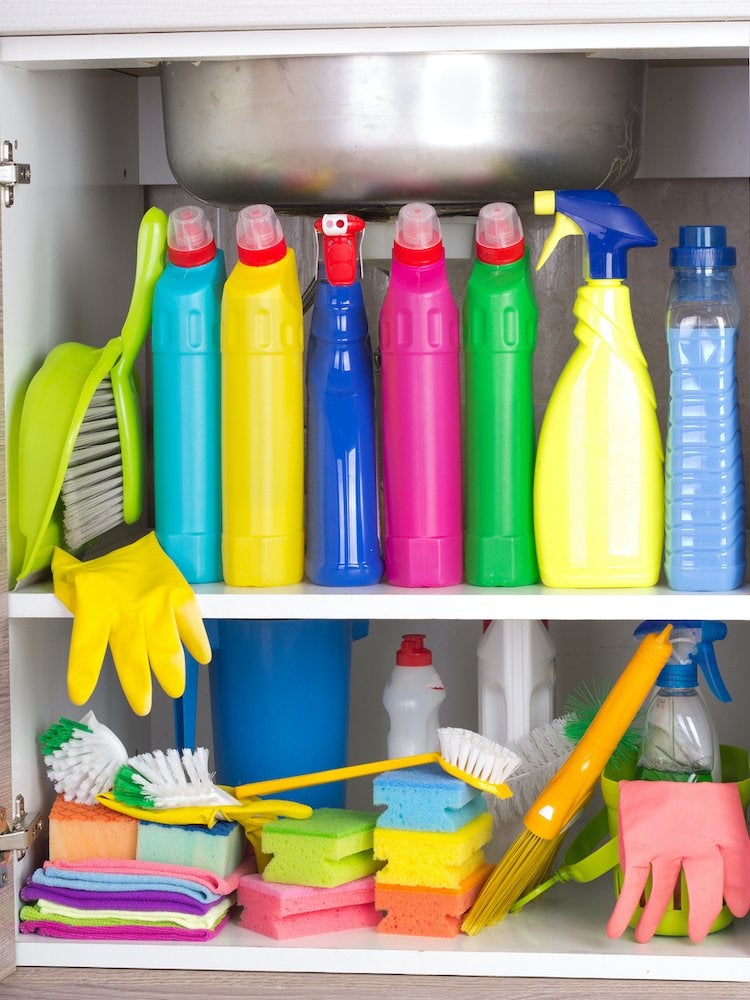
Check the label before disposing of cleaning products. Water-soluble formulas can be mixed with water and poured down the drain. Solid products—scrubbing pads, sponges, disposable dusters—can be thrown out. Anything containing bleach or ammonia should be flushed down the toilet (in small quantities), or, when possible, shared and used up. For other cleaners, contact the manufacturer’s toll free number or call your local hazardous waste disposal center.
Related: 11 Ultra Powerful Products That Cut Your Cleaning Time in Half
Treated Wood
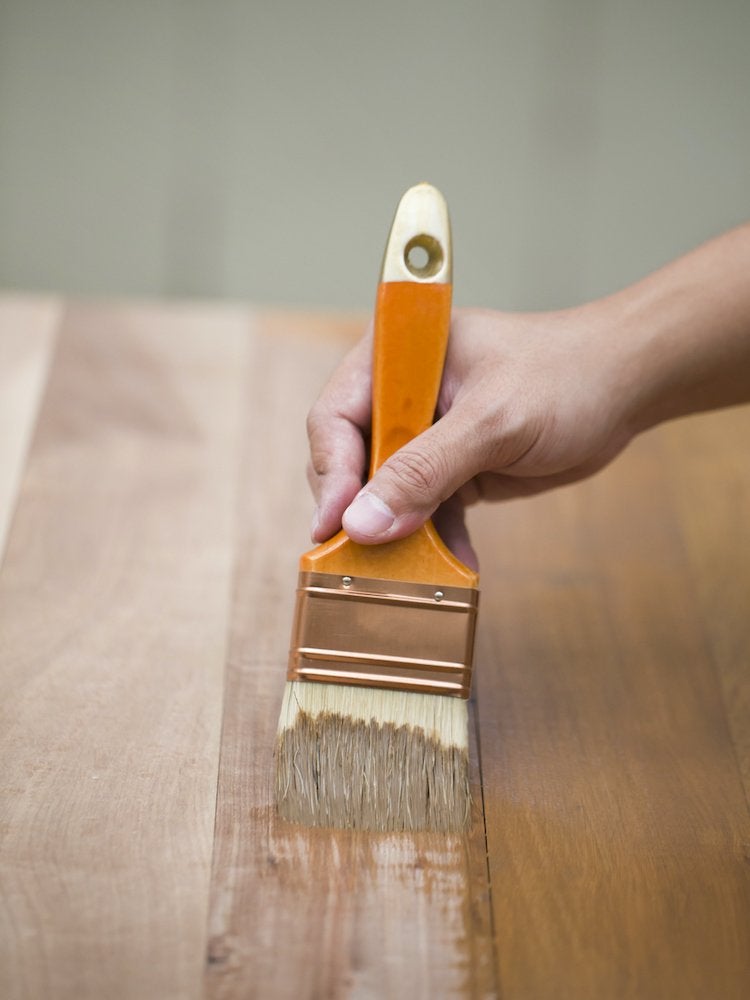
If you’re completing a home renovation project, you can’t recycle wood treated with any kind of finish. The chemicals used in wood finishes can contaminate water supplies if not properly disposed. Burning treated wood is typically prohibited unless you have a permit. Small amounts of treated wood can be taken to a landfill; for larger amounts of scrap wood, call your city’s waste management team first.
Bubble wrap
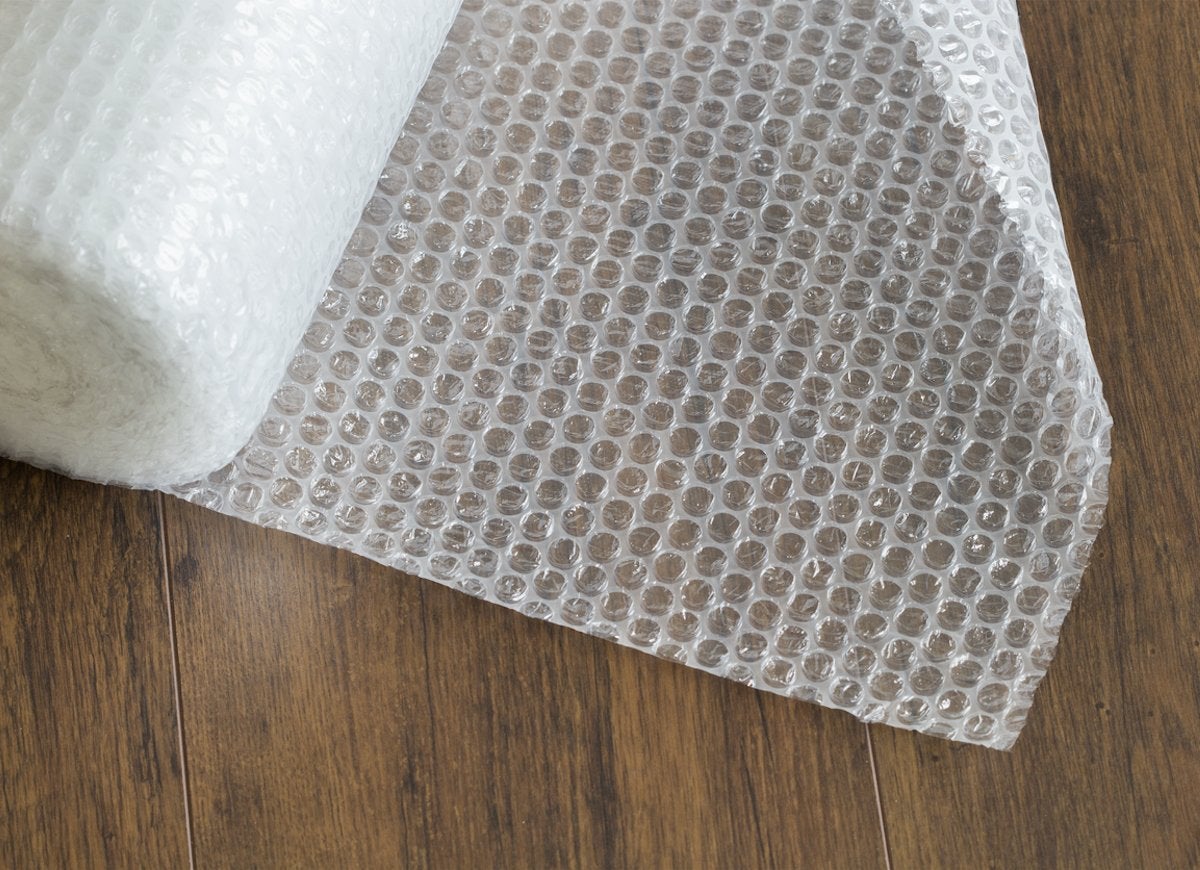
Like plastic bags, bubble wrap can’t be placed in curbside recycling. However, grocery stores often have special recycling bins for bags and plastic wrap, including bubble wrap. You can also search Earth 911’s extensive database of recycling solutions.
Related: 9 Extraordinary Uses for Bubble Wrap
Clothes Hangers
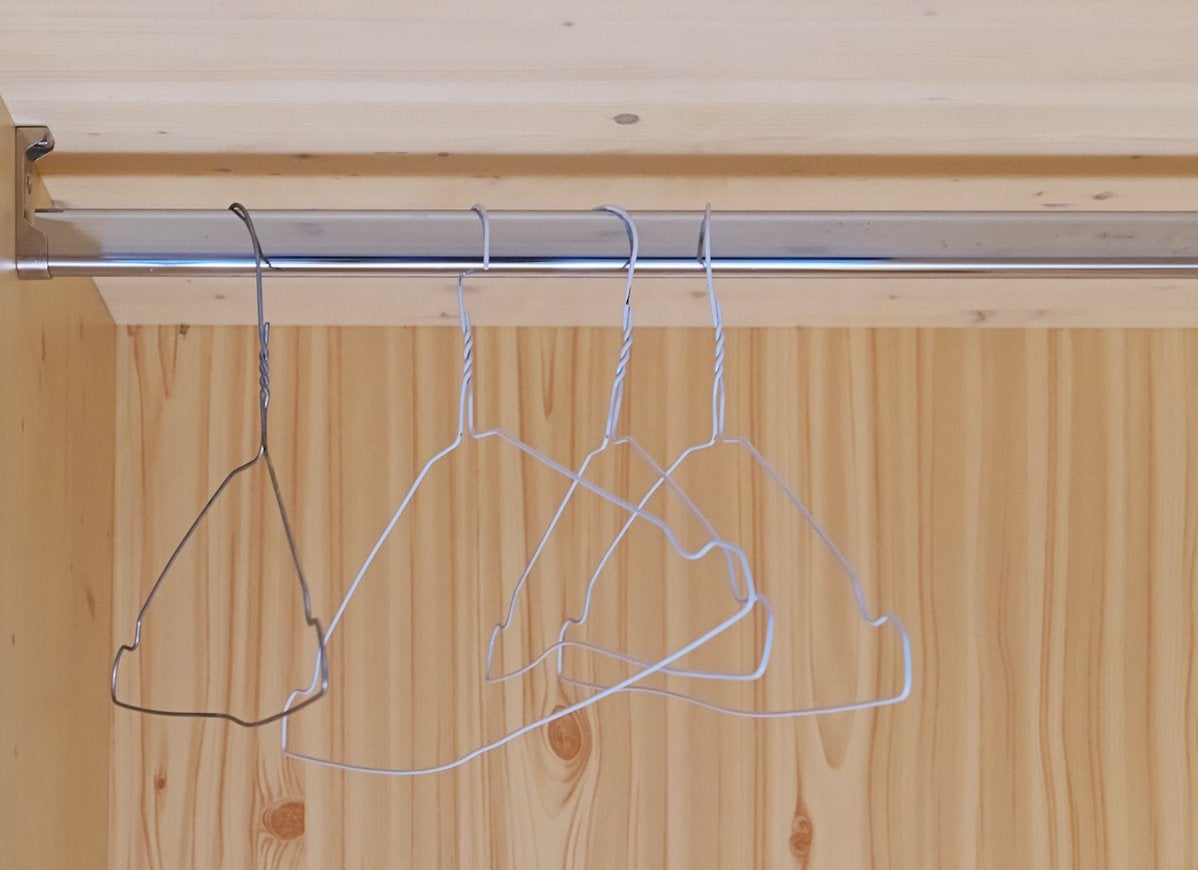
Metal hangers have an odd shape, which can get caught on recycling equipment. Meanwhile plastic hangers are often made of mixed materials, so they can’t be placed in single stream recycling bins. And wood hangers are treated, so they can’t be recycled at all. Many dry cleaners and thrift stores will accept donated hangers. Hangers that are broken or beyond use should be thrown away or repurposed.
Mattresses
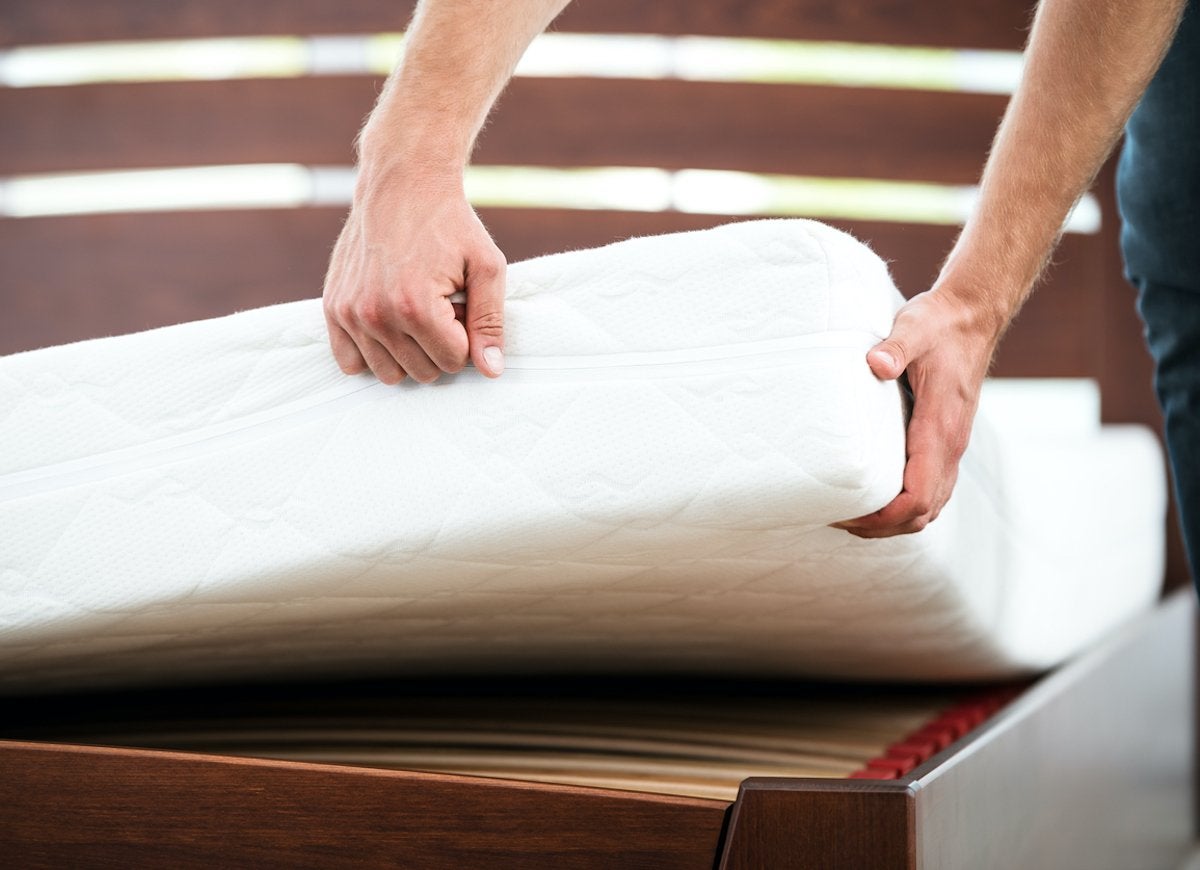
Throwing away mattresses should be a last resort. They clog up landfills and contribute to greenhouse gas emissions as they decompose. While curbside services typically won’t pick up an old mattress, there are several options for mattress recycling. Many cities offer special mattress donation services—all you have to do is call or book online. You can also contact your local Goodwill, Habitat for Humanity, or homeless shelter to see whether your mattress fits their donation criteria.
Related: 9 Ways You’re Ruining Your Mattress
Expired and Unused Medicines
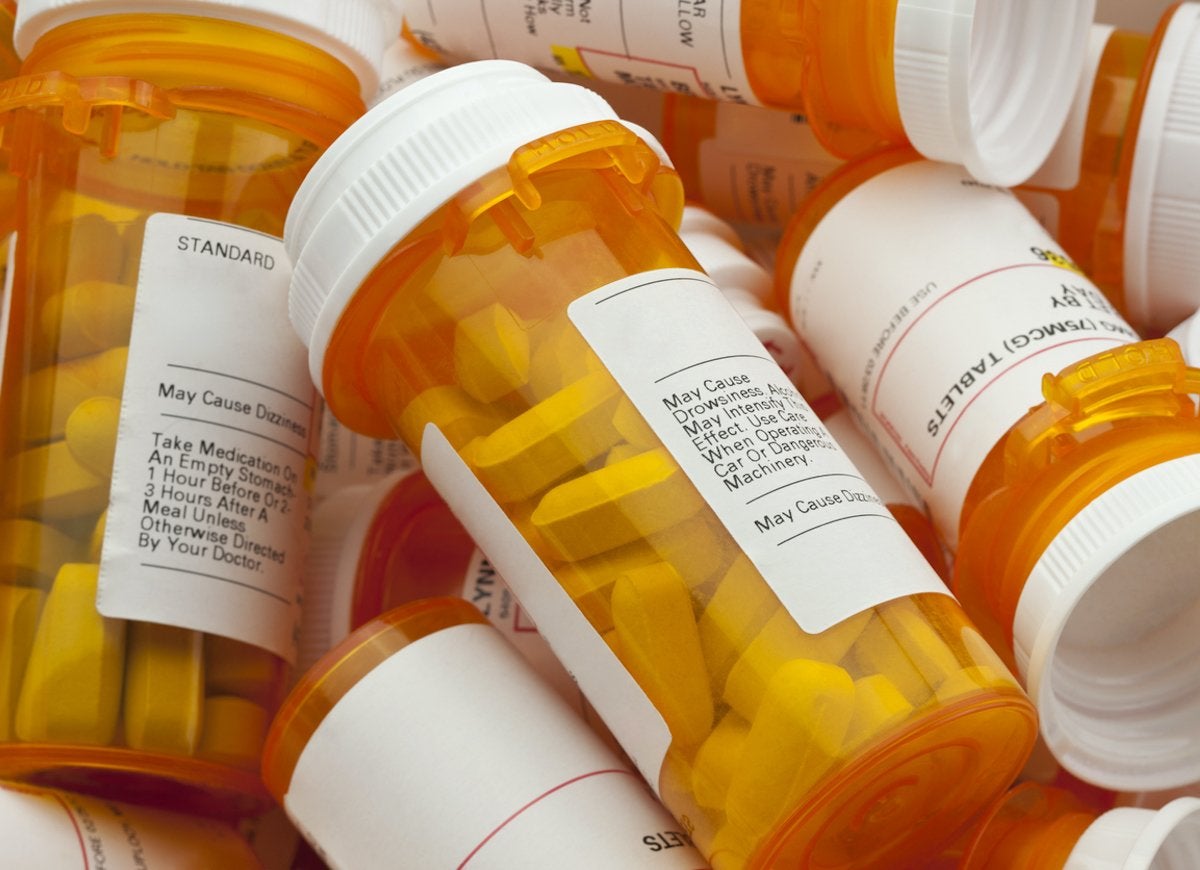
Unused and expired medicines are another recycling no-no. This extends to donating expired medicines to free clinics, which have strict rules regulating what kinds of medical products they accept. Your best bet is finding a CVS drop box near you, and safely disposing of prescription and over-the-counter drugs.
Check First
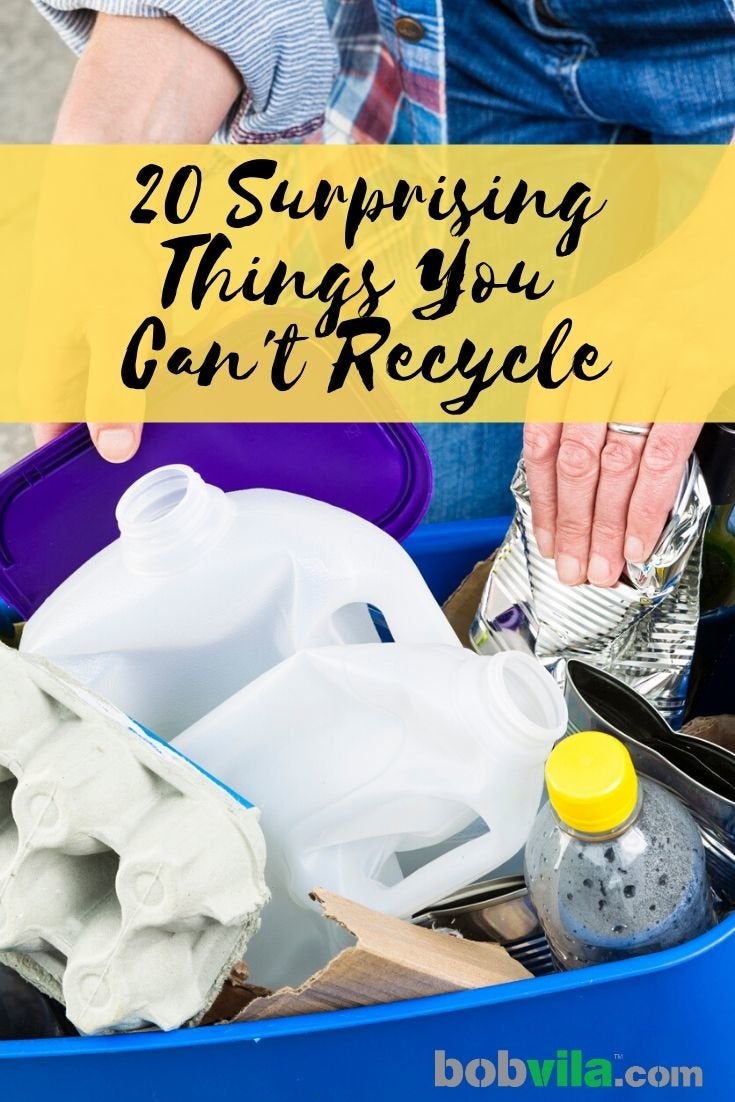
When it doubt, check for labels on the item-in-question to see if it belongs in the recycling bin. No luck? A quick Internet search should do the trick.

Everything You Need for a Lush and Healthy Lawn
Keeping your grass green and your plants thriving doesn’t just take a green thumb—it starts with the right tools and supplies.

